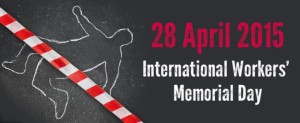Use of asbestos is increasing in Asia and the continent could face an asbestos disease ‘tsunami’ as a result, researchers have warned. Writing in the journal Respirology, experts from Australia, Indonesia and the UK note: “Although some countries such as Japan, Korea and Singapore have curtailed the use of this mineral, there are numerous countries in Asia that continue to mine, import and use this fibre, particularly China, which is one of the largest consumers in the world.” The paper adds: “Numerous factors ranging from political and economic to the lack of understanding of asbestos and the management of asbestos-related lung disease are keys to this observed trend. Awareness of these factors combined with early intervention may prevent the predicted Asian ‘tsunami’ of asbestos diseases.”
The paper spells out the measures necessary to achieve this. “Asbestos is widely used in Asia with little occupational protection and thus will produce many thousands of cases of asbestos related disease in the next decades. Reducing the risks of such diseases will require reduction in the use of asbestos, careful surveillance for asbestos related diseases and improved levels of training in the recognition and diagnosis of these disease, and cooperation among government and non-government groups in the prevention of these diseases.”
A related editorial notes: “How can we solve this asbestos time bomb that Asia is facing? Should we continue with the mining and export of asbestos? Should we go for short-term profit and accept the occupational hazards?” It concludes: “Short-sightedness is not acceptable anymore. Asbestos is a major health threat; it has already ruined too many lives. Therefore, we must help the developing world by finding suitable alternatives for asbestos as soon as possible or we will face an immense loss of quality of life and working potential in these countries.”
Su Lyn Leong, Rizka Zainudin, Laurie Kazan-Allen and Bruce W Robinson. Asbestos in Asia, Respirology, early view, published online ahead of print, 29 March 2015.
Paul Baas and Sjaak Burgers. ASIA: Asbestos stop in Asia, Editorial, Respirology, early view, published online ahead of print, 31 March 2015.

